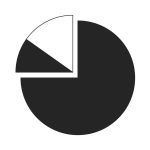What is the Concept of “Digital Health”?
What is the concept of “Digital Health”? If you work in the field and are still unsure of how exactly to define the term, then you are in good company: while there seems to be some consensus regarding what is included in the concept of “Digital Health,” there is still some confusion on the scope of everything that is included under the “Digital Health” umbrella.
The Food and Drug Administration (“FDA”) has attempted to answer this question by defining “Digital Health” to broadly include mobile health, health information technology, wearable tech, telehealth, telemedicine, and personalized medicine.
In contrast, the World Health Organization (“WHO”) provides a slightly different definition of “Digital Health” defining it to constitute “e-health” and emphasizing instead of the areas of technology encompassed in the term the themes or goals of the “Digital Health” movement: strengthening health systems and public health, increasing equity in access to health services, and working towards universal health coverage.
A quick search of the Internet will quickly generate many other slightly different definitions of what actually encompasses the term “Digital Health.”
So, the truth of the matter is, if you are unclear what the parameters of “Digital Health” really are, you are not alone. In all honesty, I am not completely clear as to what the current industry thinking is on how the concept of “Digital Health” and the concepts of “Health Technology” and “Medical Technology” overlap with one another. The best answer is probably that the term “Digital Health” is evolving as the technology itself continues to develop.
For the purposes of the Silicon Valley Digital Health Blog, when we talk about “Digital Health,” we will be talking about the apps, software, SaaS products, and digital devices employing and connecting with this software for wellness, medical, and health care purposes.
 Fixed and Flat Fees
Fixed and Flat Fees Fractional Fees
Fractional Fees Subscription Fees
Subscription Fees Hourly Fees
Hourly Fees